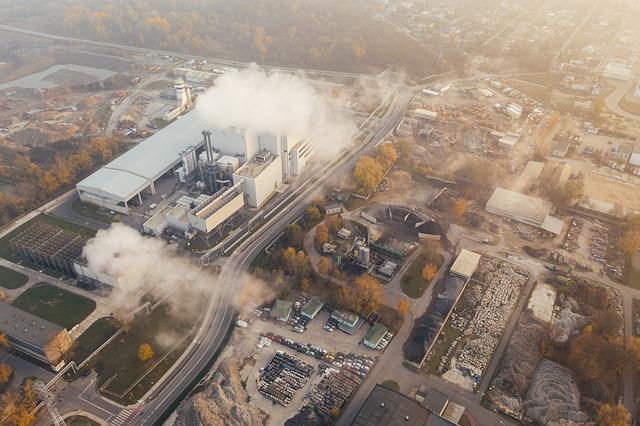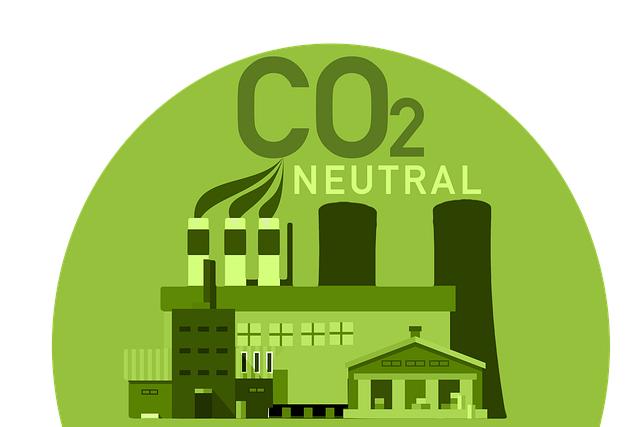- Introduction
- Impact of Carbon Emissions
- Solutions to Reduce Carbon Emissions
- Connection to Climate Change
- Future of Carbon Emissions
- Conclusion
- FAQs
- References
Introduction
Carbon emissions have become a pressing issue in today's world due to their harmful effects on the environment. The continuous rise in carbon emissions is contributing significantly to global warming and climate change. This article explores the impact of carbon emissions, discusses potential solutions to reduce them, analyzes their connection to climate change, and looks ahead at the future scenarios related to carbon emissions.
Impact of Carbon Emissions
Carbon emissions, primarily in the form of carbon dioxide released from burning fossil fuels, have a severe impact on the environment. These emissions trap heat in the atmosphere, leading to the greenhouse effect and subsequent global warming. This rise in temperature results in melting ice caps, rising sea levels, more frequent extreme weather events, and disruptions in ecosystems worldwide.

(Image: Pixabay/@NoName_13)
Furthermore, carbon emissions contribute to air pollution, leading to respiratory issues and other health problems in humans and wildlife. The environmental impact of carbon emissions extends beyond the atmosphere, affecting ocean acidity and biodiversity as well.
Solutions to Reduce Carbon Emissions
To combat the escalating carbon emissions, various solutions are being proposed and implemented globally. Transitioning to renewable energy sources such as solar, wind, and hydroelectric power can significantly reduce the reliance on fossil fuels and subsequently lower carbon emissions. Implementing energy-efficient technologies and promoting sustainable practices in industries and transportation are also vital steps in mitigating carbon emissions.

(Image: Pixabay/@marcinjozwiak)
Additionally, reforestation projects and carbon offset initiatives aim to absorb and store carbon from the atmosphere, playing a crucial role in reducing overall emissions. It is essential for individuals, businesses, and governments to collaborate and prioritize sustainable practices to combat the carbon emission crisis effectively.
Connection to Climate Change
Carbon emissions are intricately linked to climate change, as the excessive release of greenhouse gases intensifies the warming of the planet. The resulting climate changes have far-reaching consequences, including disruptions in weather patterns, loss of biodiversity, and threats to food security. Addressing carbon emissions is paramount in combating the adverse effects of climate change and ensuring a sustainable future for the planet.

(Image: Pixabay/@Leonhard_Niederwimmer)
The scientific community, policymakers, and individuals worldwide recognize the urgent need to reduce carbon emissions to mitigate the impacts of climate change and work towards a more resilient and environmentally conscious society.
Future of Carbon Emissions
As the global population continues to grow, the demand for energy and resources escalates, posing challenges in curbing carbon emissions. The future of carbon emissions hinges on innovative technological advancements, policy interventions, and widespread adoption of sustainable practices.

(Image: Pixabay/@Kanenori)
Educating the masses on the importance of carbon reduction, fostering international cooperation on climate agreements, and investing in clean energy infrastructure are pivotal for shaping a sustainable future with reduced carbon emissions and a healthier environment for generations to come.
Conclusion
In conclusion, addressing the surge in carbon emissions is critical in combating climate change and preserving the planet for future generations. By implementing sustainable practices, transitioning to clean energy sources, and engaging in global efforts to reduce emissions, we can mitigate the harmful impact of carbon emissions on the environment and create a more sustainable future.
FAQs
How do carbon emissions affect climate change?
Carbon emissions trap heat in the atmosphere, leading to the greenhouse effect, which contributes to global warming and subsequent climate change.
What are some effective solutions to reduce carbon emissions?
Transitioning to renewable energy sources, promoting energy efficiency, implementing sustainable practices, and investing in reforestation projects are effective ways to reduce carbon emissions.
Why is reducing carbon emissions important?
Reducing carbon emissions is crucial to combatting climate change, preserving biodiversity, and ensuring a sustainable future for the planet and its inhabitants.

